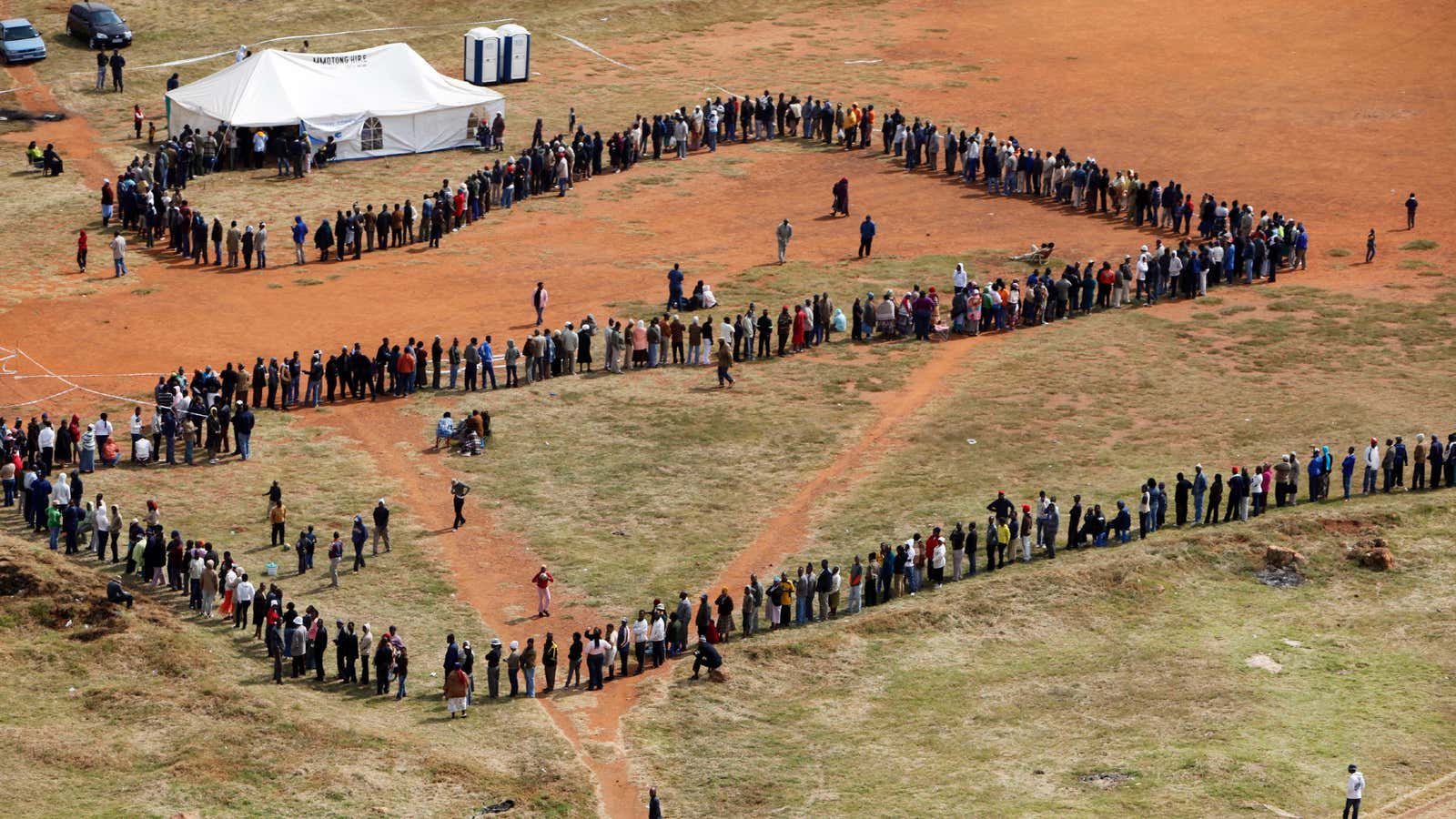For nearly two weeks, South Africans watched out for any clues that would tell them just who was in charge of their country. They watched as motorcades of luxury cars and blue-light security vehicles darted between official homes. They eagerly shared leaks over WhatsApp from closed-door meetings of the African National Congress. Press briefings and public statements were cloaked in double-speak that were clearly meant for other politicians, not the people. And the people responded in hilarious memes.
This was how South Africa’s new president came to be chosen—back door dealings and political brinkmanship. The removal of now former president Jacob Zuma gripped South Africa as it seemed the wily yet embattled president was digging in his heels one last time, right down to the last paragraph of his resignation speech. He was pitted against his deputy president Cyril Ramaphosa, the skilled negotiator who promised to bring closure to what has been difficult era in post-apartheid South Africa.
After more than twelve hours of negotiations, the party formally recalled Zuma but he held on. The final stroke was the public arrest of Zuma’s wealthy friends, the Guptas, and the threat of removing Zuma through a vote of no-confidence in parliament, even if it meant siding with the opposition.
To outsiders it may not seem that way, but this was South African democracy at play. It’s happened before, when the party removed former president Thabo Mbeki in 2008 after a bitter power struggle. These recalls are dramatic and traumatic for a relatively young democracy, but they serve to decentralize power and ensure the longevity of Africa’s oldest liberation party beyond the ambitions of an individual leader.
Yet, these internal machinations also leave voters feeling removed from a process that directly affects them. At the end of apartheid, as the ANC moved from liberation movement to political party, South African voters entrusted the party of Nelson Mandela with their freedom. In South Africa, politics at the dinner table—and everywhere else—is encouraged. Everyone has an opinion, from the seats of cramped minibus tax whizzing through the inner city, to the boardrooms of the country’s richest square mile.
The travesty of the Zuma years is that it has excluded ordinary South Africans from participating in their hard-won democracy. Zuma’s ANC did not resemble a movement of the people and a series of corruption scandals lead to a weakened economy and increasing poverty and desperation. Yet, his administration also inadvertently created the kind of public discourse where ordinary South Africans chat about their country’s sovereign credit rating.
Ramaphosa has promised to turn this around, and bring back an ANC that serves the people. The real turning point, however, is for the South African public, with just over a year to the next election, to focus on demanding transparency and accountability and reclaim their democracy.
